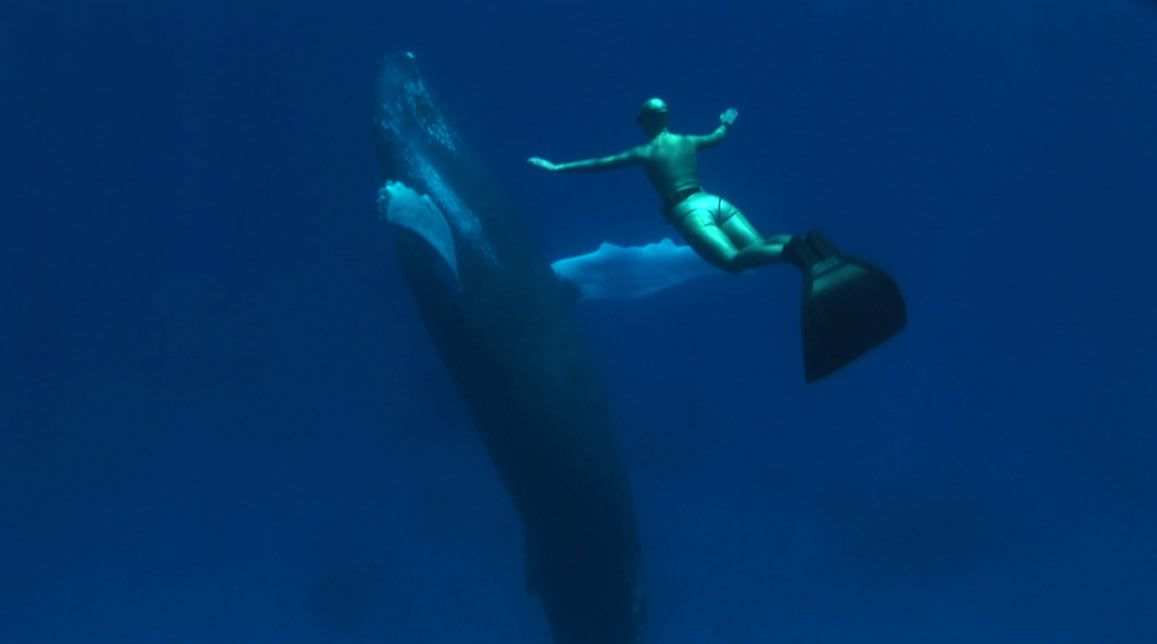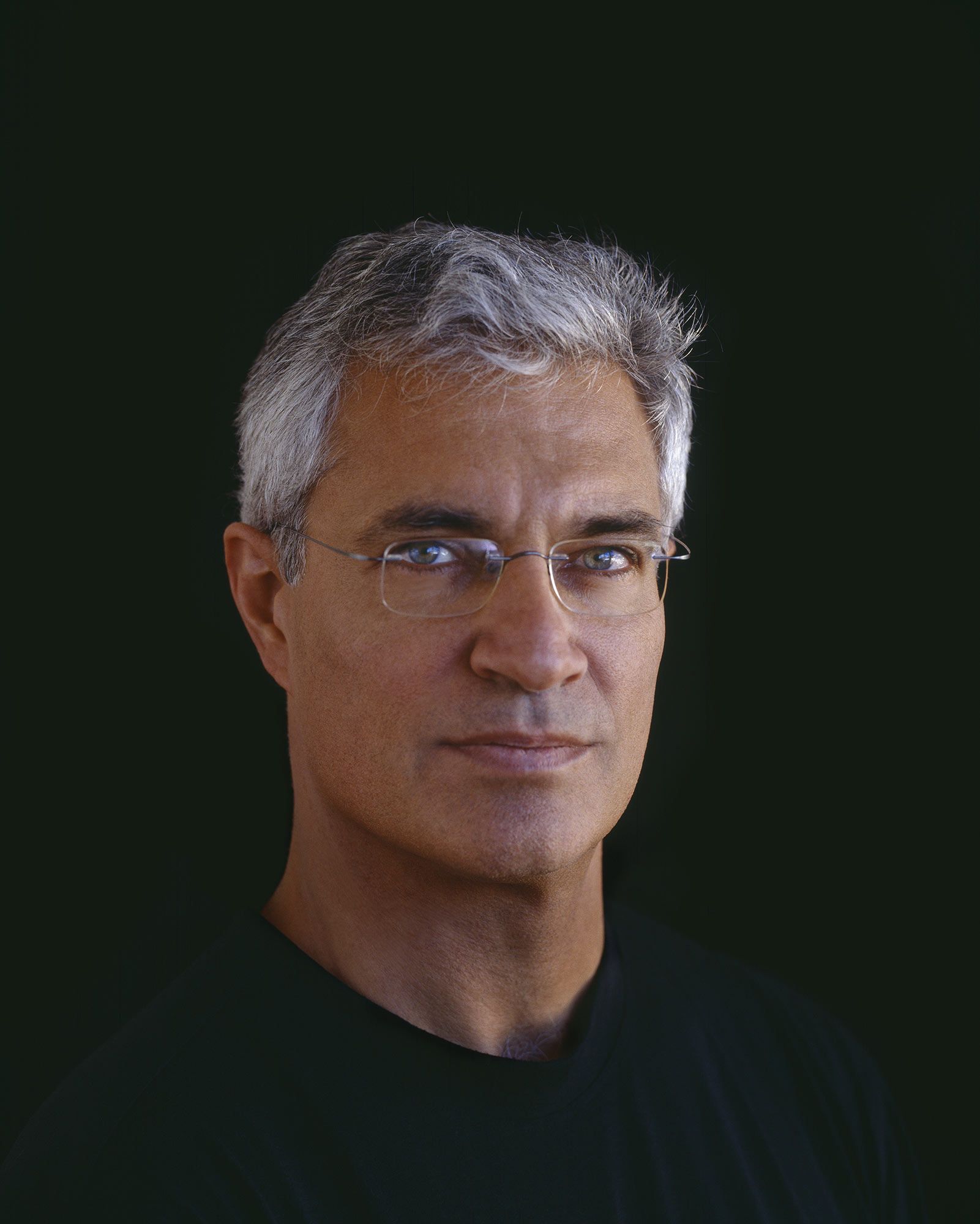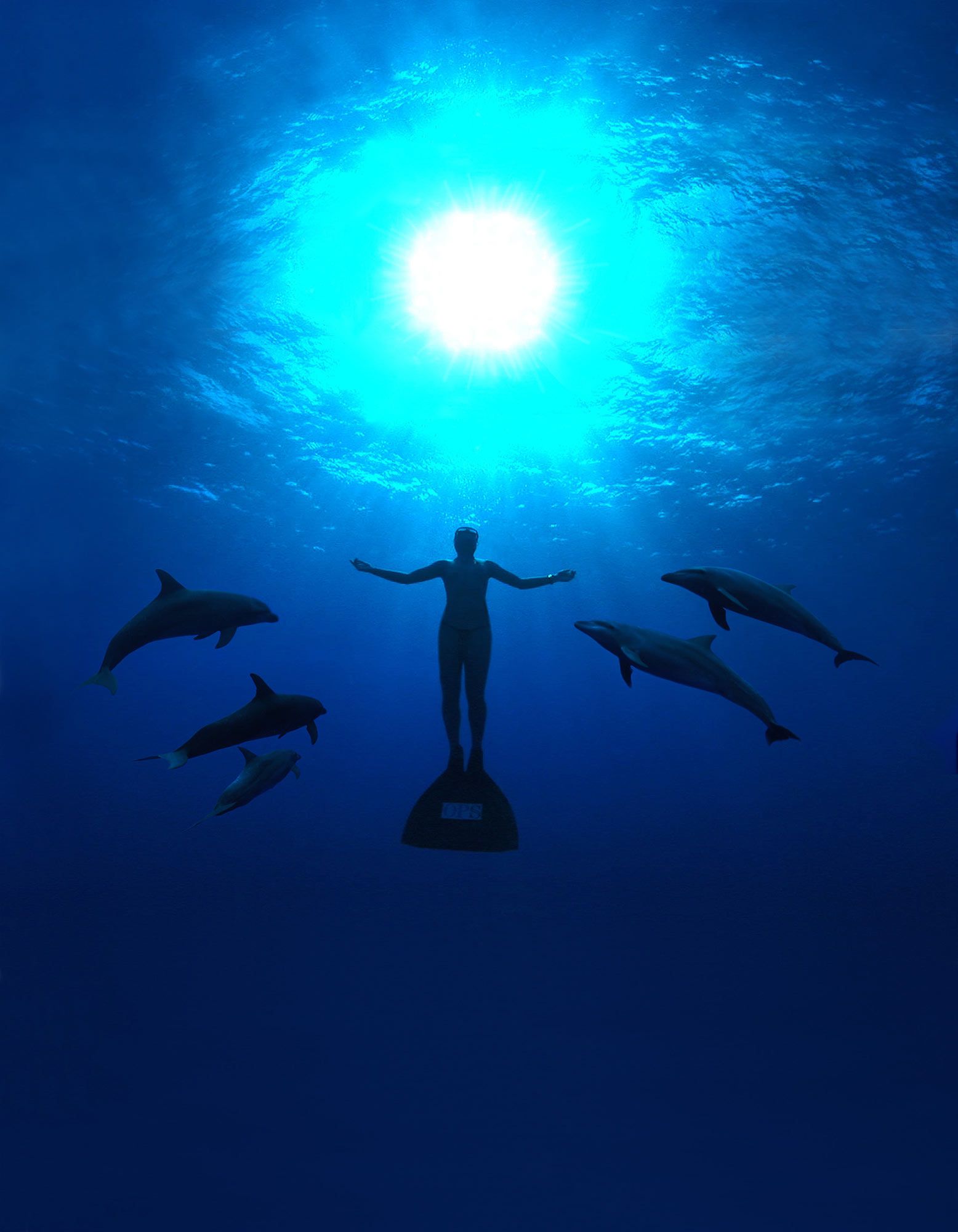So can you just talk a little bit about how this story came to you and how you became involved in doing this documentary?
Louie Psihoyos: Yeah. One of my best buddies is Jim Clark, the guy who started Silicon Graphics in the 80s. He's a billionaire (Laughs). We've been diving around the world together and it was sort of disconcerting that every time we'd come back from a new place, there was always degradation going on. There would be big-game long-line fisherman in the marine sanctuary and he would remember these places being great about 20 years ago, so we decided to do something about it. We came up with this idea to start this organization called OPS, the Oceanic Preservation Society, where we would make films and try to help reverse, as much as we could, what was going on in the oceans. It's a big issue. It's almost a joke, what we have in front of us. We wanted a really strong, simple business statement that people could remember. I said, 'OK. Let's not save the whole planet. Just 70% of it.'
Yeah, that's effective. So can you talk about how you got involved with Ric O'Barry and Taijii?
Louie Psihoyos: Yeah. I was at a conference in 2005 and I was trying to get familiar with the subjects. At the time, we were thinking about doing television programming, something like whales, dolphins, overfishing, tuna, that kind of thing, so we were just trying to get a feel of what the topics were. We were going to these marine mammal conferences, and they would give these 15 or 20 minute sessions of some with some of the most boring folks you can imagine, a week long of it. There was supposed to be a video night at one of them, and Ric O'Barry was supposed to be the keynote speaker. I thought, 'Great, this guy trained Flipper. Finally something I can relate to, something from popular culture.' As the time drew closer, it was obvious that he wasn't going to be able to talk.' I was curious and thought, 'What's going on here?' It was a sponsored event from the SeaWorld Research Institute and I called up Ric and asked why wouldn't they let you talk, and he said he was going to talk about the dolphin slaughters in Taijii and they missed my message about captivity. So, I thought I never had heard about any kind of captive dolphin trade or that there was any kind of problem going on. I had certainly never heard of people killing dolphins in this day and age. I said, 'Who's doing anything about it?' He said, 'Well, just me right now. I'm going to Taijii next week. Do you want to come?' What I was doing was taking a three-day crash course on how to make a movie. I worked in still photography for about 35 years, but I still had never made a film before and this is my first crack at it. It was funny because right before this all happened, Jim started Silicon Graphics, which enabled us to really do things in three dimensions on the computer, basically everything he sped up by an order of magnitude, including making films like Jurassic Park possible. Right before this, we were on vacation with him. He had just built the world's largest private sailboat, called Athena. We were down on the Carribbean and Steven Spielberg was with his family on the boat, and I'm with my family on the boat. It turns out that my son started doing sleepovers with Steven Spielberg's son. Steven wanted to know what the father of this new friend of his son's did for a living and I said that I'm starting to make movies now (Laughs). He said, 'Well, let me give you some advice,' because he knew what we were going to be doing. He said, 'Never do a movie involving boats or animals.' I thought, everything we're doing involves boats and animals. Then we get to Taijii where the subject of my movie becomes this impenetrable cove that's like a natural fortress of sorts. It has guard dogs and sensors and police 24-7. So I really went about it doing everything wrong. About halfway through, I realized that there was a way we could combine all of these programs that we're working on that could really relate to each other. To me, The Cove was not just so much about a secret cove in Japan, but it's about a microcosm of the ocean. When I was at National Geographic, there was somebody working on a story about life in the crack of a sidewalk. I liked the idea that you could kind of take a portion of a whole and sort of dissect it so you can see it more clearly and that's kind of what we did with The Cove, in a way. It's a thriller, the way it's set up. It doesn't feel like a normal documentary.
So can you talk about all the high-tech way you went about shoot about, with the cameras hidden in the rocks and things like that? Can you talk about how you went about doing all this stuff without being detected?
Yeah. It sounds like your own makeshift SWAT team.
Louie Psihoyos: Yeah. And it was actually Charles' idea to bring along a thermal camera. Not a night-vision camera, but a thermal camera. It was illegal to bring out of the country, but what it did was it gave us a level of security because we knew if there were guards or police waiting for us there. So, basically, we'd do a lap of the town and go to The Cove and then go to the opposite side of The Cove, hop the fence, and basically look for anybody that might be hidden in there. Then they'd give us the OK or we'd have to use a diversionary tactic to distract the guards. I mean, people that saw the movie, Pierce Brosnan saw the movie and he said it was like the best spy movie he'd ever seen, because it's real. People would say, 'Was it really that scary?' And I'd say, 'No, it was ten times scarier.' We'd have five hotel rooms, they'd have five hotel rooms. We'd go out, they'd go out. We always had to have rouses to distract them. We went into Taijii seven times and the best stint that we had was a three-and-a-half-week stretch where we had 24-hour police surveillance. I needed to get rid of the cops, so we had these cameras set up all over town and we had two cars that were identical and then a third one that was not made by the cops. We'd park it outside of town, on a corner, so they'd basically be four or five blocks behind us, we'd all get out and then the car would keep on going, to take the cops on a wild goose chase. That worked for several nights before they caught on to it.
So there has been a ton of critical praise heaped on this movie, so can you talk your response to that, and are there plans for expansion?
Louie Psihoyos: People are calling it - not me saying it, but reviewers are giving it a perfect score and they're saying maybe it's not only the shoe-in for the Oscar for best documentary, but maybe for best film, now that it's been extended to 10. It's an exciting movie. We're breaking it out into the foreign markets right now. I think we've been licensed to, I want to say, more than 40 countries now. We're in Australia and New Zealand. We come out in France next month. Basically we're trying to put as much pressure on the Japanese as possible. We've got them on the run. The sister city to Taijii is from Australia and, yesterday, they cut ties with them. It was the first time in the sister-city program that one city has cut ties with another, because of what's going on over there. They said they can't live up to their goals as a sister city until this is fixed, so it's causing quite a bit of stir in the Japanese government right about now. We're trying to make this movie a public-relations nightmare for them.
That's incredible. So have there been people that have come to you, like maybe celebrities or anything, that have tried to help, or what other kinds of responses have you seen from this film?
So is there anything else that you're developing right now that you can talk about?
Louie Psihoyos: Well, they start hunting dolphins again on September 1st. We're kind of on a deadline here. We want to make it very very uncomfortable for them to start it back up again. The difference between this movie and any other movie you'll see, is we have a chance, by seeing this movie, you have a chance of saving tens of thousands of some of the smartest creatures on the planet and save human beings.
So are you going back up there when they start hunting again?
Louie Psihoyos: Ric is, yeah. There are arrest warrants out for us for trespassing and disrupting commerce and I think a third one of photographing an underwater place without their knowledge. People ask, 'Can you go back to Japan?' Yeah, I can go back to Japan, but I want to go back on my own.
So, finally, what would you like to say to those who might have heard about the film, about what they can expect from The Cove?
Louie Psihoyos: Well, for people who are staying away in droves, scared that they're going to see violence, we took our cues from Hitchcock. A lot of the violence is imagined. It's sound and good editing and it's PG-13. You'll probably see more violence in a cop show. It's done very very tastefully and it's not a horror movie. It's a thriller.
Excellent. Well that's about all I have for you, Louie. Thanks so much for your time.
Louie Psihoyos: Great. Thanks a lot. Cheers.
You can see director Louie Psihoyos's thrill-ride of a documentary The Cove in theaters now.



